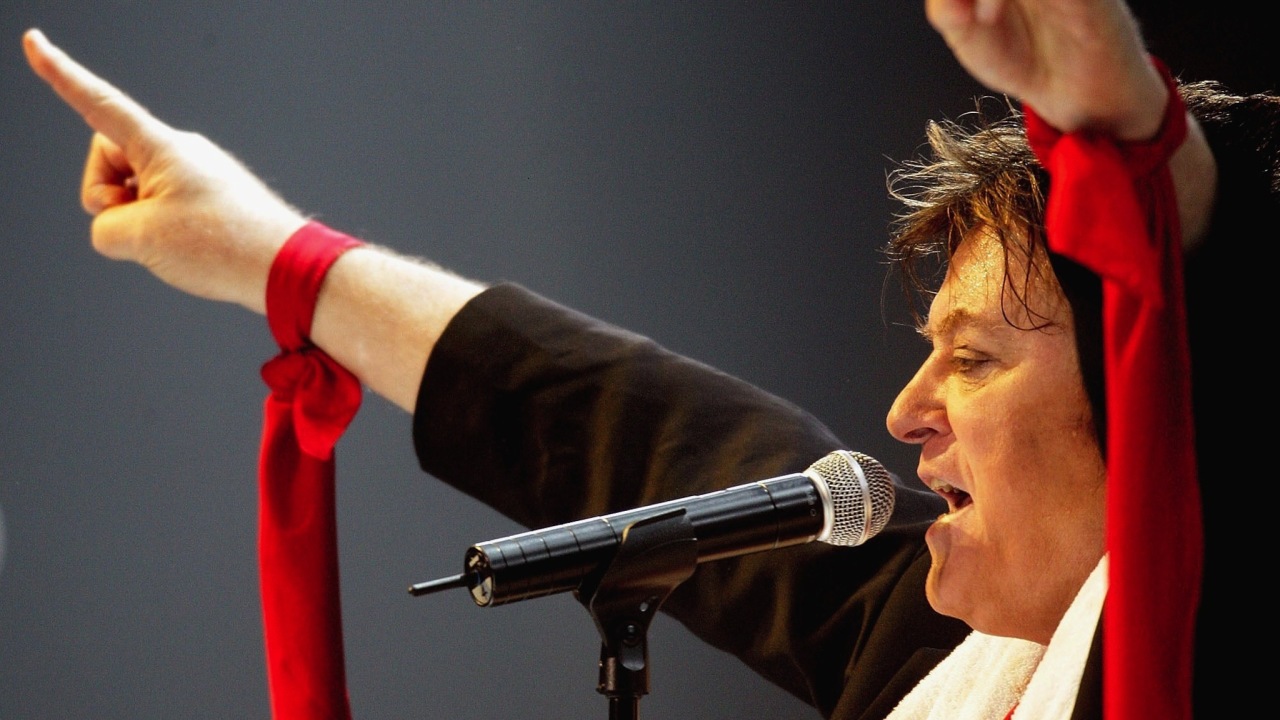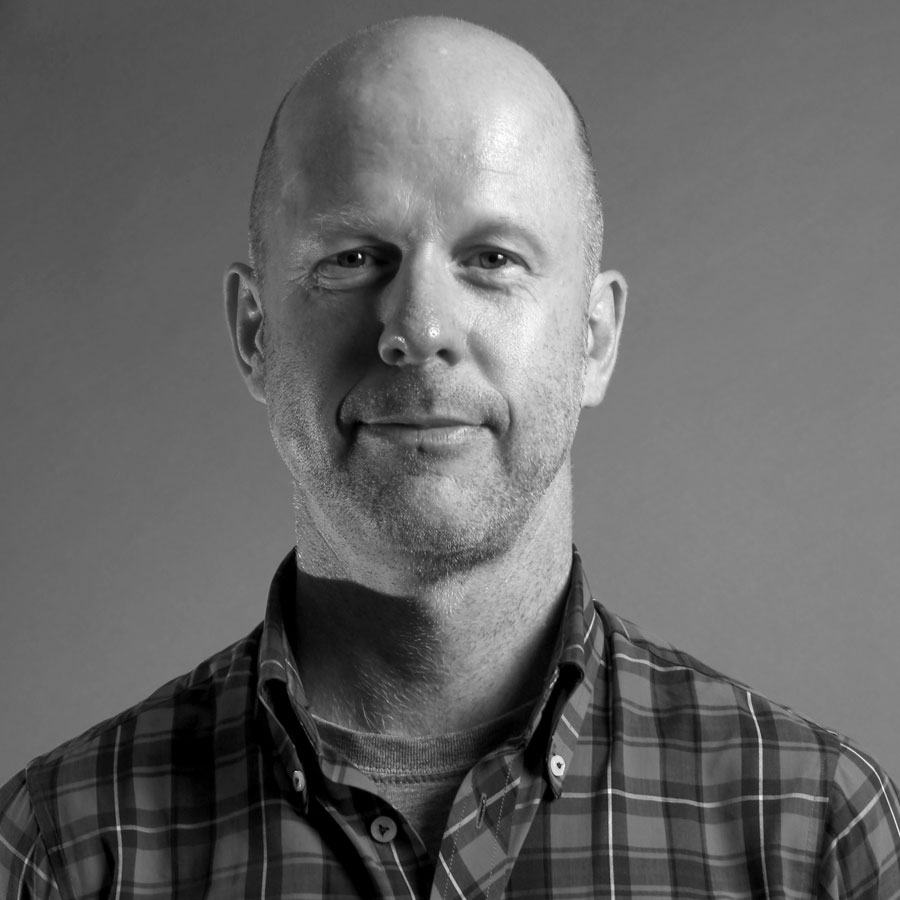Bernard “Doc” Neeson, vocalist with legendary Australian hard rock outfit The Angels, passed away this morning at 7.15am Australian eastern standard time after an 18-month battle with brain cancer. He was 67.
Born in Belfast in 1947, Neeson was renowned for his unique onstage persona, incorporating influences such as German expressionism and philosophy into his livewire performances and The Angels’ blistering hard rock attack.
Neeson’s musical career began in earnest when he joined the Moonshine Jug and String Band in Adelaide in 1971. In 1974, Neeson and the String Band’s founding members, Rick and John Brewster, formed ’50s-inspired rockers The Keystone Angels, which eventually became The Angels.
In the late ’70s, on the back of a string of multi-platinum albums – most notably 1978’s Face To Face and 1979’s No Exit – the quintet were arguably the biggest rock band in Australia. A series of world tours throughout the ’80s saw their influence spread to scenes such as LA’s Sunset Strip (Guns N’Roses were huge fans; Great White covered the band’s songs Face The Day and Can’t Shake It) and, later, Seattle (on tour in Australia recently, Pearl Jam guitarist Mike McCready wore a Face To Face T-shirt onstage).
Following a car accident in 1999 Neeson left The Angels, and his relationship with the Brewsters broke down. The ensuing decade was tainted by legal battles over ownership of the name, while the singer pursued solo projects such as Red Phoenix and his own version of The Angels, Doc Neeson’s Angels.
A brief reunion saw the frontman rejoin the band in 2008 to mark the 30th anniversary of Face To Face, but it was short-lived.
Last month, Neeson conducted his final ever interview for a soon-to-be-published feature on The Angels in Classic Rock. Too sick to be interviewed in person, he responded to a series of questions via e-mail from his hospital bed. What follows is taken from the transcript of those interviews, conducted over two e-mails.
What do you recall of meeting the Brewsters for the first time?
“I first met the Brewsters when I was invited to be a guitarist in the Moonshine Jug and String band and I went to John Brewsters’ house to audition at one of their band rehearsals. I had met somebody who was already in that band at a University party when he heard me playing some jug band songs. His name was Leigh Hobbah. He was already in the band with John & Rick Brewster and their guitarist was about to leave, so Leigh asked me over to audition. John subsequently took up a course at Flinders Uni in Film Direction where I was also a student studying Film Directing and majoring in English.
“I joined the jug band on the condition that they amplify the sound because at that point they couldn’t be heard in the beer garden where they had a residency. The blues genre that they were into was a kind of break from the traditional blues. So I took the band into a more modern field by having the sound amplified. I also said that I wanted to focus on songwriting. Later I said we needed to learn electric instruments to present our newly written songs to a more modern audience. So my initial focus on joining with the Brewsters was to do songwriting with them and later we formed The Keystone Angels as a songwriting unit. So the key songwriting unit became Brewster/Neeson/Brewster, which was recognised by Malcolm and Angus Young of AC/DC who encouraged George Young and Harry Vanda of the Easybeats to sign the Keystone Angels to their record company Alberts Productions.
“We had our first major successful album Face To Face which went Gold in 1979, setting a new record for length of time in the Australian Music Charts, beating Pink Floyd by staying 69 consecutive weeks in the charts.”
[](https://www.youtube.com/watch?v=5KSUdtxH9e0)
When was the moment you knew you were on to something with The Angels? Was there a particular song, or a particular success, something that made you think, ‘We’re onto something here’?
“I think when we first started to get a response from the audience to the line ‘Am I Ever Gonna See Your Face Again’. That would have been just after the release of our first single, which I think was 1976. Then we really felt like the songs were connecting with the public.”
What was the inspiration for your stage persona? How did it develop from the Moonshine Jug and String Band, through the Keystone Angels to where it ended up in The Angels?
“The persona of Doc had very little to do with what Doc was doing as a performer in the Jug band. Doc’s persona emerged from influences I took from studying German Expressionism films. The lighting in Fritz Lang’s film ‘Metropolis’ was aimed to lay bare the soul of the individual. One of the things that seemed to me to be very strong in that film was the impact of German Expressionists films of the 1930s. They were very into ‘urban isolationism’ and this was shaped by the psychoanalyst Freuds’ theories of personal self-analysis, which laid bare the dark side of an individual’s personality. In this way Doc was attempting to mirror the emotional mood of his audience.”
[](https://www.youtube.com/watch?v=Ndq5Ed-zMsI)
Drawing on the influences of German expressionism and your studies in drama, did that make you and the band unique in the Australian music scene of the late 70s?
“Absolutely. German Expressionism has been a big influence and I think I may have been the first performer in Australia to use it in a rock context.”
John talks of the total focus you and the Brewsters had in the band’s early days, that you were a great songwriting team. What did the Brewster-Neeson-Brewster songwriting team mean to you?
“It did mean a lot. There was a lot of camaraderie in our team once. We did some great songs. I wrote most of the words and they put the words to music. We drew on life experiences and between us we had a great deal to draw on that worked exceptionally because it was real and people could really relate to the songs. Some fans even wrote to me to say that our songs had given them hope in very dark times and in a couple of cases even prevented them from carrying out plans to suicide. That kind of thing made our work feel really rewarding - much more so than winning any awards.”
[](https://www.youtube.com/watch?v=w5Si-NDMQGI)
What are your memories of supporting David Bowie? Did you have any contact with him?
“My memories of touring with David Bowie are very happy and exciting ones. I was very proud that he selected the band to be his support band on that tour. He even insisted that the promoters change the posters to ‘featuring special guests’ and had to take out ‘support act’ and in that way he gave us significant acknowledgement as a first rate Australian band. Unfortunately I don’t have contact with him now.”
What was the feeling like in the band during the late 70s/early 80s as albums such as Face To Face and No Exit became successful?
“We enjoyed a feeling of a sense that we were truly a great band, which lifted our confidence in our songwriting and playing.”
What do you think the Angels’ legacy will be?
“The Angels/Angel City enjoyed recognition and respect in many parts of the world. I only hope in years to come people will continue to love our music and recognise what a great band we were.”

